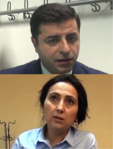| |||||||||||||||||||||||||||||||||||||||||||||||||||||||||||||||||
All 550 seats in the Grand National Assembly 276 seats needed for a majority | |||||||||||||||||||||||||||||||||||||||||||||||||||||||||||||||||
|---|---|---|---|---|---|---|---|---|---|---|---|---|---|---|---|---|---|---|---|---|---|---|---|---|---|---|---|---|---|---|---|---|---|---|---|---|---|---|---|---|---|---|---|---|---|---|---|---|---|---|---|---|---|---|---|---|---|---|---|---|---|---|---|---|---|
| Opinion polls | |||||||||||||||||||||||||||||||||||||||||||||||||||||||||||||||||
| Turnout | 83.92% ( | ||||||||||||||||||||||||||||||||||||||||||||||||||||||||||||||||
| |||||||||||||||||||||||||||||||||||||||||||||||||||||||||||||||||
 | |||||||||||||||||||||||||||||||||||||||||||||||||||||||||||||||||
| |||||||||||||||||||||||||||||||||||||||||||||||||||||||||||||||||
 |
|---|
|
|
General elections were held in Turkey on 7 June 2015 to elect 550 members to the Grand National Assembly. This was the 24th general election in the history of the Turkish Republic, electing the country's 25th Parliament. The result was the first hung parliament since the 1999 general elections. Unsuccessful attempts to form a coalition government resulted in a snap general election being called for November 2015.
The Justice and Development Party (AKP), which had governed Turkey since 2002, lost its parliamentary majority and won 258 seats with 40.9% of the vote, clearly missing the aimed two-thirds majority for the implementation of President Recep Tayyip Erdoğan's call for an executive presidency. The main opposition Republican People's Party (CHP) also fared worse than their 2011 result, and won 132 seats with 25.0% of the vote. The Nationalist Movement Party (MHP) had been projected to win over many disaffected voters from the AKP. Its share of the vote increased, and the party won 80 seats with 16.3% of the vote. The new Peoples' Democratic Party (HDP) decided to contest the election as a party rather than fielding candidates as independents, despite concerns that it could have fallen below the 10% election threshold and lose all representation in Parliament. The party fared better than expectations, which was a key factor for denying the AKP another absolute majority: it won 13.1% of the vote and took 80 seats, the same as the MHP. The potential for a hung parliament had been widely considered and predicted before the election so the country and politicians were better prepared for the constitutional process that would follow such a result.
Campaigning before the election focused mainly on a faltering economy, the political conflict between the government and the Gülen Movement, and Turkey's involvement in the Syrian Civil War. Growing allegations of government corruption and authoritarianism, mainly originating from the 2013 corruption scandal and the 2013 Gezi Park protests respectively, were also part of the issues raised during the election campaign.
Electoral fraud claims and political violence caused controversy in the run-up to the election. Several candidates and party offices were subject to politically motivated attacks, culminating in the death of four HDP supporters after two bombs exploded during a rally in Diyarbakır on 5 June. The interference of President Erdoğan, who was accused of covertly campaigning for the AKP under the guise of 'public opening' rallies, was also controversial since the president of Turkey was constitutionally required to exercise political neutrality.[1] Despite fraud claims dating back to the hugely controversial 2014 local elections and numerous claims of misconduct on polling day, the election was largely praised by the Organization for Security and Co-operation in Europe for being well-organised and was declared free and fair by the European Parliament.[2][3][4][5][6]
- ^ "OSCE criticizes Erdoğan's violation of impartiality in election". Bugun.com.tr. Archived from the original on 27 September 2015.
- ^ "Sakarya'da oy pusulaları ve mühürlerin bulunduğu 2 çuval çalındı". soL Haber Portalı – güne soL'dan bakın. 5 June 2015. Archived from the original on 7 June 2015. Retrieved 9 June 2015.
- ^ "MHP Kocaeli sonuçları 8 Haziran MHP'nin oyları mı çalındı?". teknokule.com. Archived from the original on 10 June 2015. Retrieved 9 June 2015.
- ^ "Sadece Kadıköy'de 2 bin 860 korsan seçmen tespit edildi". Bugun.com.tr. Archived from the original on 10 June 2015. Retrieved 9 June 2015.
- ^ "Schulz on the Turkish general elections". European Parliament. Archived from the original on 10 June 2015. Retrieved 9 June 2015.
- ^ "OSCE praises election process, says it was well-organized". DailySabah. 8 June 2015. Archived from the original on 10 June 2015. Retrieved 9 June 2015.



